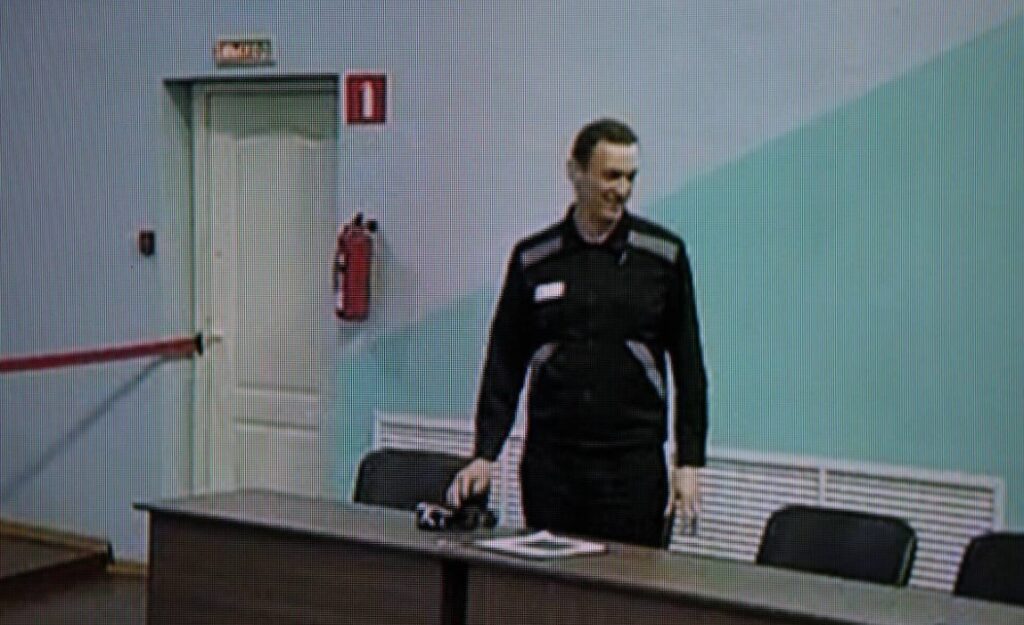Kremlin critic faces a total of 30 years behind bars
Jailed Russian opposition leader Alexey Navalny has been sentenced to 19 more years in prison after being found guilty on extremism charges, a court within the high-security prison where he is being held, said on Friday, according to Russian state media TASS.

Navalny, 47, once led street protests against the Russian president, Vladimir Putin, built a nationwide political opposition, and revealed salacious details of Kremlin officials’ corrupt lifestyles. As revenge, Russia has sentenced him to a cumulative three decades in prison, a term that will keep the Kremlin critic behind bars and out of politics for as long as Putin remains alive.
Navalny was already serving an 11-and-a-half year sentence for fraud and other charges that he has described as spurious. His supporters have been hunted down and arrested for supporting his “extremist” movement. He had few illusions before Friday’s verdict was read that he would be released or given a short prison sentence.
“It’s going to be a huge term,” Navalny said in a message passed to his lawyers and posted online on Thursday. “This is what’s called a ‘Stalinist’ term.”
New trial held behind closed doors
In the new trial, Navalny was accused of creating an extremist organization, the Anti-Corruption Foundation. That organization has authored multiple investigations into the riches of the Russian elite. He also founded a network of nearly 40 regional offices that sought to challenge Kremlin-approved local politicians. Both groups were outlawed as extremist organizations in 2021, a designation that exposed people involved in their operations to criminal prosecution.
Navalny faced a total of seven serious charges in the trial, including participating in and funding extremist activities, creating an NGO that “infringes on the rights of citizens,” involving minors in dangerous acts, and rehabilitating Nazism. In April, Navalny said a separate proceeding had been launched against him stemming from the extremism case, in which he would stand accused of terrorism and be tried by a military court. At the time, the politician said he expected the trials to result in life imprisonment.
The trial was held behind closed doors at the IK-6 penal colony in Melekhovo, about 235km (145 miles) east of Moscow. The opposition leader appeared thin but defiant in his first appearance on a closed circuit television feed. But a judge quickly closed the trial to the public, limiting publicity and making it nearly impossible to follow the proceedings.
Navalny urges Russians to resist Putin regime
State prosecutors had requested Navalny get a further 20 years on six criminal charges, including creating an extremist organisation and then financing and inciting extremist activities.
In a closing statement at his trial, Navalny said: “For a new, free, rich country to be born, it must have parents. Those who want it, who expect it and who are willing to make sacrifices for its birth.”
He also called on Russians to resist the Kremlin, saying that the purpose of the new prison sentence was “to intimidate you, not me.”
“We know for sure that if one in 10 of those outraged by the corruption of Putin and his officials took to the streets, the government would fall tomorrow,” Navalny said. “We know for sure that if those who are against the war took to the streets, they would stop it immediately.”
International condemnation of Navalny’s sentence
Navalny’s sentence has drawn widespread condemnation from human rights groups and western governments, who have called it a blatant violation of his rights and an attempt to silence a vocal critic of Putin’s regime.
The US State Department issued a statement on Friday saying it was “deeply concerned” by Navalny’s sentence and urged Russia to release him immediately and unconditionally.
“The United States stands with those who seek to exercise their fundamental freedoms of expression and assembly in Russia and around the world,” the statement said.
The European Union’s foreign policy chief Josep Borrell also denounced Navalny’s sentence as “unacceptable” and “politically motivated.”
“The EU reiterates its call on Russia to fulfil its international obligations as a member of the Council of Europe and respect human rights,” Borrell said in a tweet.
Amnesty International said Navalny’s sentence was “a travesty of justice” and “a mockery of human rights.”
“Alexey Navalny is being punished for daring to challenge Vladimir Putin’s grip on power and for exposing corruption at the highest levels of the Russian state,” Natalia Zviagina, Amnesty International’s Moscow Office Director, said in a statement. “He is a prisoner of conscience who must be released immediately and unconditionally.”







